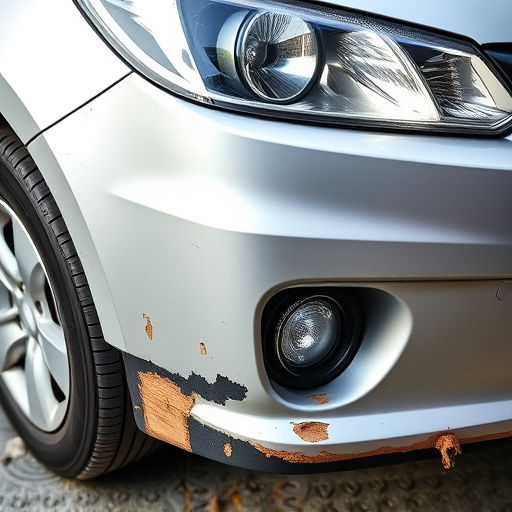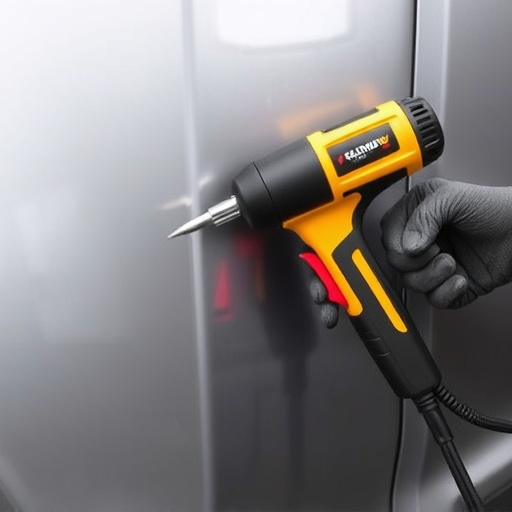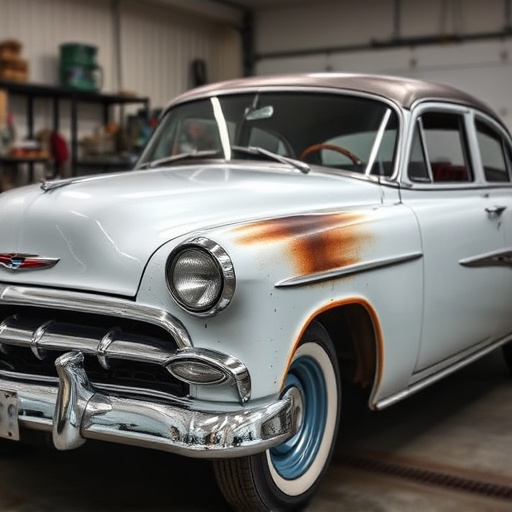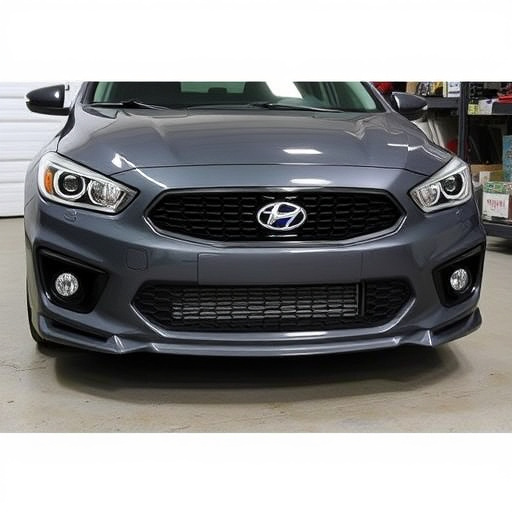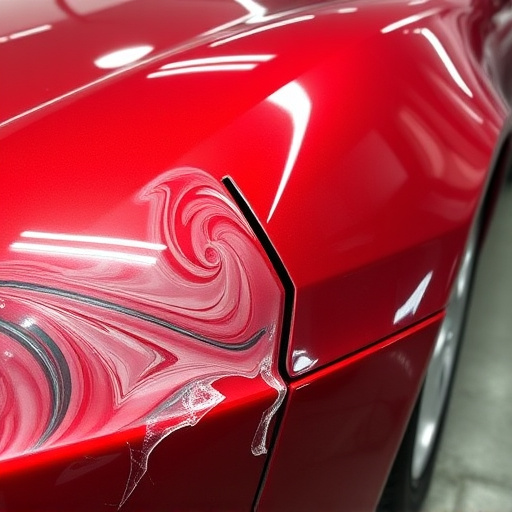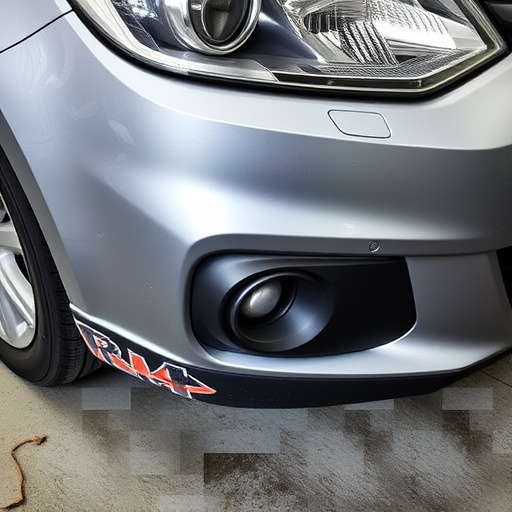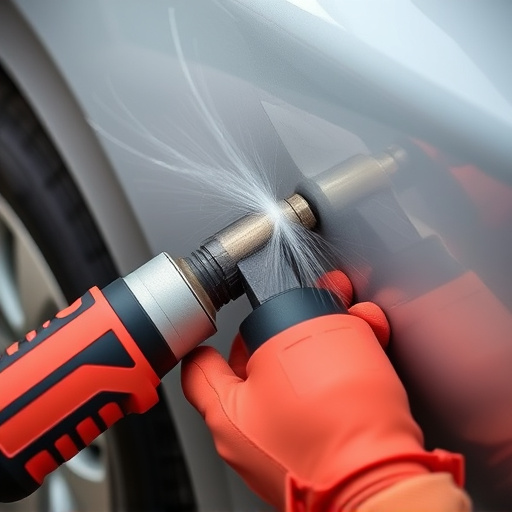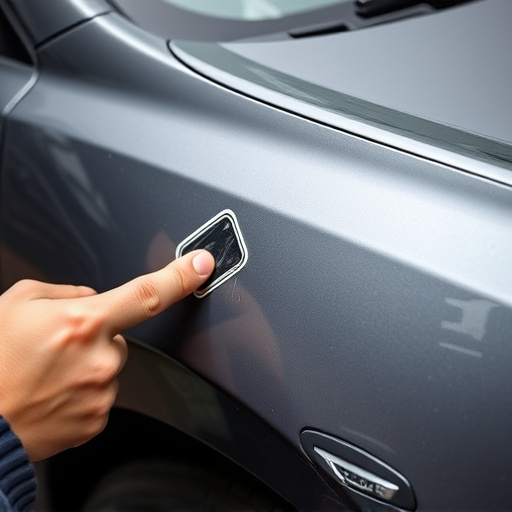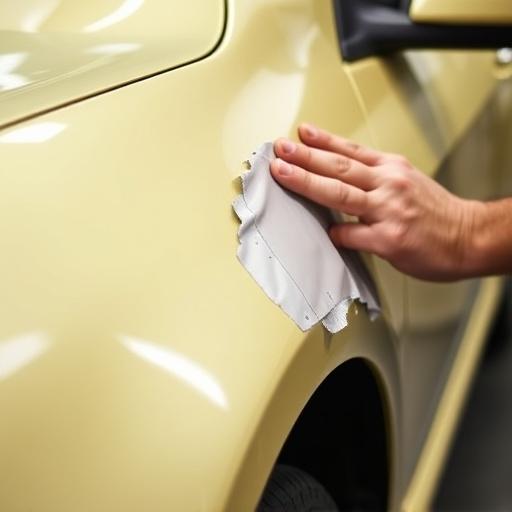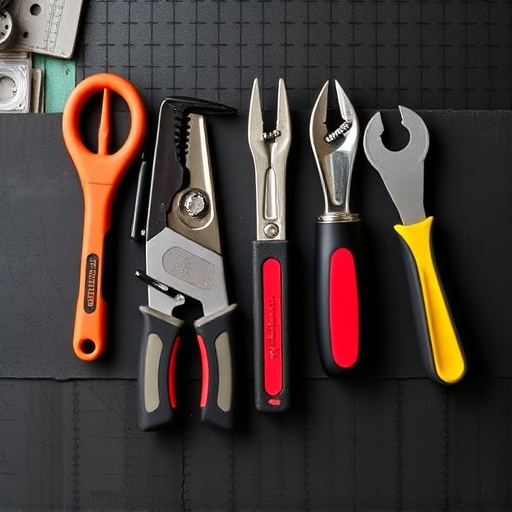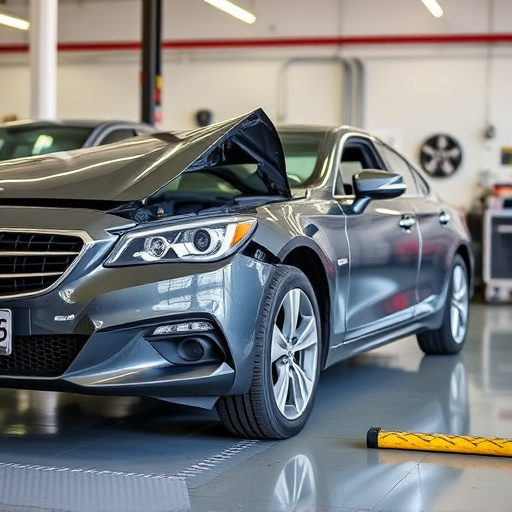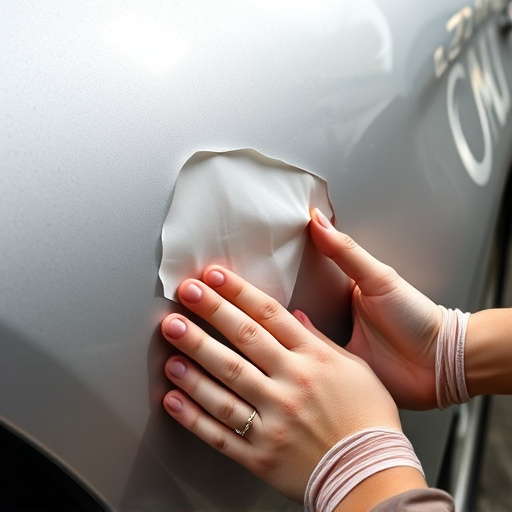Certified welding techniques rely on electrode selection for top weld quality and durability. Different electrodes suit various applications, with flux-cored electrodes enhancing productivity in arc and gas welding. Choosing the right electrode balances material compatibility, welding environment, current, voltage, and travel speed, ensuring structural integrity, adhering to standards, and maintaining aesthetic precision in auto repair.
In the realm of certified welding, electrode selection is a game-changer. This meticulous choice impacts not only the quality and strength of welds but also the efficiency and longevity of the entire process. Understanding different electrode types tailored for specific welding applications is paramount. Factors like material, amperage, and environment play crucial roles in making informed decisions. By optimizing electrode selection, welders can achieve superior results, ensuring robust connections that stand the test of time in various industries.
- Understanding Electrode Types for Diverse Welding Applications
- Factors Influencing Electrode Selection in Certified Processes
- Optimizing Performance: Choosing Right Electrodes for Longevity
Understanding Electrode Types for Diverse Welding Applications

In the realm of certified welding techniques, electrode selection is a game-changer that can significantly impact the outcome and quality of welds. Understanding different electrode types is crucial for professionals in vehicle body shops and car repair services seeking to achieve precision and durability. Each electrode is designed with specific characteristics tailored to diverse applications, from structural steel joints in heavy industries to delicate car body restoration projects. For instance, flux-cored electrodes are popular for their versatility, offering a continuous wire feed that enhances productivity in both arc and gas welding, making them ideal for various automotive repairs.
The choice of electrode depends on factors like material type, joint design, and desired mechanical properties of the final weld. In car body restoration, where precision and aesthetics matter, specialized electrodes with controlled deposition rates and low porosity can produce clean, strong bonds, ensuring the structural integrity of restored vehicles. Thus, for professionals in vehicle body shops and car repair services, mastering electrode selection is a key aspect of mastering certified welding techniques, contributing to high-quality outcomes across various projects.
Factors Influencing Electrode Selection in Certified Processes

Selecting the appropriate electrode for certified welding techniques is a nuanced process influenced by several key factors. Understanding these variables is essential to achieving high-quality welds, ensuring structural integrity, and meeting industry standards. Material compatibility stands out as a primary consideration; different metals require specific electrodes to facilitate optimal bonding. The environment in which the welding takes place—whether indoor or outdoor, dry or damp—also plays a significant role in electrode choice.
Current, voltage, and travel speed are other crucial elements impacting electrode selection. Higher currents generally demand electrodes with greater conductivity while lower voltages may necessitate higher-density electrodes. Welding speed is equally important; faster processes often require more durable, high-performance electrodes capable of enduring higher heat input. For applications like dent repair in cars or auto repair near me, where precision and aesthetics are paramount, the right electrode selection can make all the difference, ensuring that repairs not only hold but also maintain the vehicle’s original appearance.
Optimizing Performance: Choosing Right Electrodes for Longevity

In the realm of certified welding techniques, electrode selection plays a pivotal role in optimizing performance and ensuring longevity. The right electrodes can significantly enhance the quality and durability of welds, making them essential for any collision repair service or car bodywork project involving auto painting. By choosing electrodes tailored to specific materials, thicknesses, and welding processes, technicians can achieve cleaner, stronger joints that stand the test of time.
This precision involves considering factors such as electrode composition, size, and current type. For instance, in heavy-duty applications like truck repairs, high-current, solid core electrodes may be preferred for their ability to handle thicker metal and produce robust bonds. Conversely, finer work on auto painting projects might call for lower-current, coated electrodes that offer greater control and cleaner fusion lines. Optimizing these variables ensures not just the structural integrity of welds in collision repair services but also enhances the overall aesthetic appeal of car bodywork.
Selecting the appropriate electrode is a critical aspect of achieving successful and sustainable certified welding techniques. By understanding the diverse electrode types, considering environmental factors, and optimizing performance, welders can ensure consistent quality and longevity in their work. This tailored approach to electrode selection not only enhances the structural integrity of welded joints but also contributes to increased efficiency and cost-effectiveness in various industrial applications.
